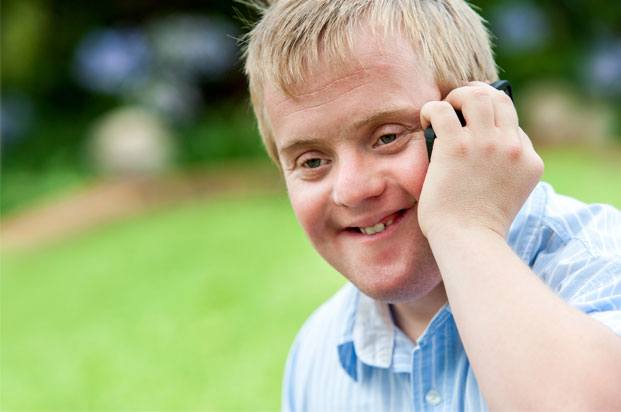Down’s Syndrome

Learning difficulties in people with Down's vary from person to person
If you’ve heard of Down’s Syndrome but aren’t sure what it is, read on. In this article, The Mix asks, what is Down’s syndrome, what causes Down’s syndrome and what support is available for people with the condition.
What is Down’s Syndrome?
Down’s syndrome is when you’re born with an extra chromosome. This can happen by chance, because of a change in egg or sperm egg before birth.
People who have Down’s Syndrome will have some level of learning disability and this varies from person to person. People with Downs Syndrome will have a range of abilities. Some will be able to live with a degree of independence and can do things like work and volunteer. Other people may need daily or more regular care.
Just as everyone does, people who have Down’s syndrome have:
- Individual personalities
- Things they like and don’t like
- Unique things that make them who they are
You can learn more about learning disabilities and their causes here.
How many people have Down’s syndrome?
750 babies are born with Down’s syndrome every year.
What causes Down’s syndrome?
Down’s syndrome is a genetic condition caused by an extra chromosome. It can come from either the mother or the father. Research shows that older mothers have a higher chance of giving birth to babies with Down’s syndrome, but the reason for this is unknown and young mothers can have a child with Down’s syndrome too.
When is a baby diagnosed with Down’s?
This is generally made at birth when the baby may already have some or all of the physical symptoms of Down’s syndrome and slower development. A test for an extra copy of a chromosome would then need to be done to confirm the diagnosis.
A screening test can be done before a baby is born to find out the likelihood of it having downs, but they’re not definite. If a doctor thinks there is a possibility that your baby will have downs or another genetic condition, you will be referred to a geneticist who will explain the possibilities and your options.
What treatment is available for Down’s syndrome?
There is no ‘cure’ for Down’s syndrome, but there is support available, including speech and language therapy and counselling.
Can people with Down’s live normal lives?
People with Down’s syndrome can live full lives. With support, they can become semi-independent, get an education, get jobs, and have healthy friendships and relationships. Nicholas, who has Down’s, shared his experience of living with Down’s syndrome with The Mix.
The type of education people with Down’s syndrome have, depends on their learning disabilities. Some people will go to mainstream schools and have support from a teaching assistant or SENCO (special educational needs coordinator), others will go to a specific school for people with learning disabilities.
A number of people with Down’s do go into further education, whether that’s getting a diploma or even getting A levels and going to University, it all depends on the person. Either way, with the right support and education people with Down’s can often get a job and become more independent. You can learn more about support for disabled students here.
Can people with Down’s Syndrome have children?
Women with Down’s are often able to have children, but men with Down’s syndrome have a lower fertility rate than men in general. Either way, young people with Down’s should use contraception to prevent unwanted pregnancies and STIs. More and more people with Down’s are now enjoying healthy relationships and getting married.
Learning more about learning disabilities and syndromes in our resources here. If you’ve been impacted by Down’s syndrome or another learning disability we would love to hear from you on our discussion boards.
Next Steps
- Chat about this subject on our Discussion Boards.
By Ally Thomas
Updated on 09-Nov-2022
No featured article










